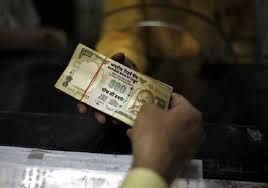Although strategists say there is no sign of any pick-up in the investment cycle, the hope that inflation will settle down is a big driving force for those betting on private sector banks, notes Malini Bhupta
 Foreign institutional investors might be disenchanted with public-sector banks but their liking for select private banks remains.
Foreign institutional investors might be disenchanted with public-sector banks but their liking for select private banks remains.
In the September quarter, FII ownership in Axis Bank increased 2.7 per cent to 43.4 per cent.
FIIs’ penchant for these stocks is understandable, given the returns these have given over a 10-year period.
Axis Bank has delivered 32 per cent compounded annual growth rate returns over the past 10 years, while HDFC Bank has returned 27 per cent and ICICI Bank 17 per cent.
These stocks are good bets if one wants to bet on cyclicals.
In the current ‘hope’ rally, the market is looking at rate-sensitives and cyclicals again, bringing these private banks back into focus.
Although strategists say there is no sign of any pick-up in the investment cycle, the hope that inflation will settle down is a big driving force for those betting on private sector banks.
Nomura’s Prabhat Awasthi prefers private banks as
a play on a likely positive surprise in inflation and as a hedge against a potential temporary growth uptick.
Given that the recent spike in inflation is driven by the sharp rise in food prices, the expectation is that food prices will cool down after November and stay there till March.
Even if this does not translate into rate cuts by the Reserve Bank of India, Awasthi believes it would have a positive impact on rate-cyclicals, especially private banks.
This optimistic view, however, is not shared by many who look beyond the cyclicality of the business.
There are concerns on how the stalwarts in the private banking space will be impacted by the entry of new banks.
Saurabh Mukherjea of Ambit believes the golden era for private sector banks could end when RBI opens the doors to at least seven (probably up to 10) new banks.
The driving force behind this theory is that currently, the cost of current accounts and savings account is artificially depressed, the fundamental reason behind the 20 per cent return on equity posted by top private sector banks.
With the entry of new banks, the cost of funding these low cost accounts will increase and this would have a direct bearing on the RoEs of incumbents.
Mukherjea says private banks could face the same situation in 2014 that the telecom sector did in 2008.

 Foreign institutional investors might be disenchanted with public-sector banks but their liking for select private banks remains.
Foreign institutional investors might be disenchanted with public-sector banks but their liking for select private banks remains.